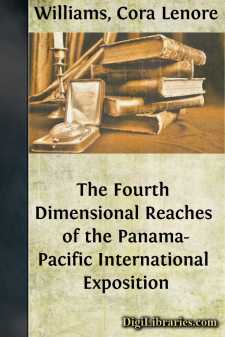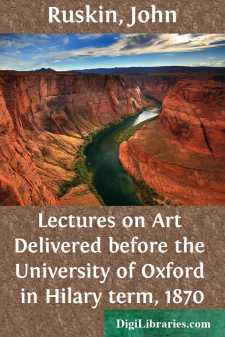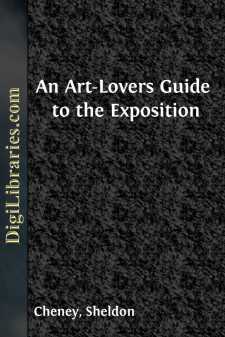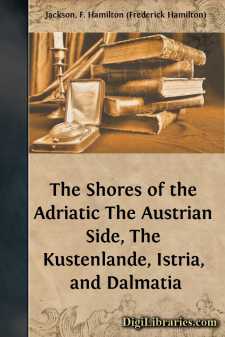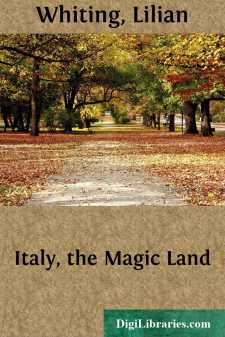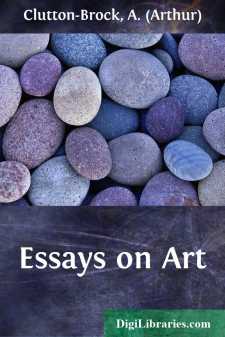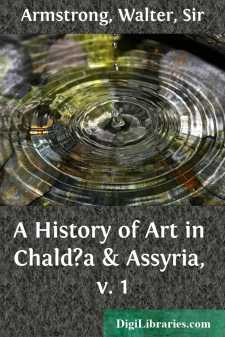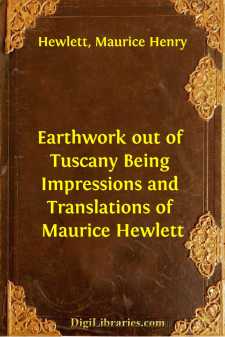Art
- African 1
- Asian 2
- Collecting 1
- Collections, Catalogs, Exhibitions 6
- Criticism 2
- European 8
- General 14
- History 11
- Middle Eastern 1
- Sculpture 4
Art Books
Sort by:
A Fourteenth Century Legend Friar Bacon, reading one day of the many conquests of England, bethought himself how he might keep it hereafter from the like conquests and so make himself famous to all posterity. This (after great study) he found could be no way so well done as one; which was to make a head of brass, and if he could make this head to speak (and hear it when it spoke) then might he be able...
more...
by:
John Ruskin
PREFACE TO THE EDITION OF 1887. The following lectures were the most important piece of my literary work done with unabated power, best motive, and happiest concurrence of circumstance. They were written and delivered while my mother yet lived, and had vividest sympathy in all I was attempting;—while also my friends put unbroken trust in me, and the course of study I had followed seemed to fit me for...
more...
by:
John Ruskin
LECTURE I. THE DISCOVERY AND APPLICATION OF ART. A Lecture delivered at Manchester, July 10, 1857. 1. Among the various characteristics of the age in which we live, as compared with other ages of this not yet very experienced world, one of the most notable appears to me to be the just and wholesome contempt in which we hold poverty. I repeat, the just and wholesome contempt; though I see that some of...
more...
by:
Sheldon Cheney
Foreword This handbook is designed to furnish the information necessary for intelligent appreciation of the purely artistic features of the Exposition. It is planned first to explain the symbolism of the architecture, sculpture and painting; and second, to point out the special qualities that give each artistic unit its individual appeal. It is made for the intelligent observer who, having enjoyed the...
more...
by:
James W. Steele
THE STORY OF STEAM That which was utterly unknown to the most splendid civilizations of the past is in our time the chief power of civilization, daily engaged in making that history of a new era that is yet to be written in words. It has been demonstrated long since that men's lives are to be influenced not by theory, or belief, or argument and reason, so much as by that course of daily life which...
more...
PREFACE This volume is complementary to that dealing with the Italian side of the Adriatic, and follows much the same lines. It has not been thought necessary to repeat what appeared there about the sea itself, but some further details on the subject have been added in an introductory chapter. The concluding chapter treats of the influence which the two coasts exerted on each other, and contains some...
more...
by:
Lilian Whiting
THE PERIOD OF MODERN ART IN ROMEBut ah, that spring should vanish with the Rose!That youth’s sweet-scented manuscript should close?The nightingale that in the branches sang,Oh, where and whither flown again,—who knows? Omar Khayyam. Rome, as the picturesque city of the Popes in the middle years of the nineteenth century, was resplendent in local color. It was the Rome of sunny winters; the Rome of...
more...
ESSAYS ON ART "The Adoration of the Magi" There is one beauty of nature and another of art, and many attempts have been made to explain the difference between them. Signor Croce's theory, now much in favour, is that nature provides only the raw material for art. The beginning of the artistic process is the perception of beauty in nature; but an artist does not see beauty as he sees a cow....
more...
by:
Walter Armstrong
CHAPTER I. . § 1.—Situation and Boundaries of Chaldæa and Assyria. The primitive civilization of Chaldæa, like that of Egypt, was cradled in the lower districts of a great alluvial basin, in which the soil was stolen from the sea by long continued deposits of river mud. In the valley of the Tigris and Euphrates, as in that of the Nile, it was in the great plains near the ocean that the inhabitants...
more...
APOLOGIA PRO LIBELLO: IN A LETTER TO A FRIEND Although you know your Italy well, you ask me, who see her now for the first time, to tell you how I find her; how she sinks into me; wherein she fulfils, and wherein fails to fulfil, certain dreams and fancies of mine (old amusements of yours) about her. Here, truly, you show yourself the diligent collector of human documents your friends have always...
more...


